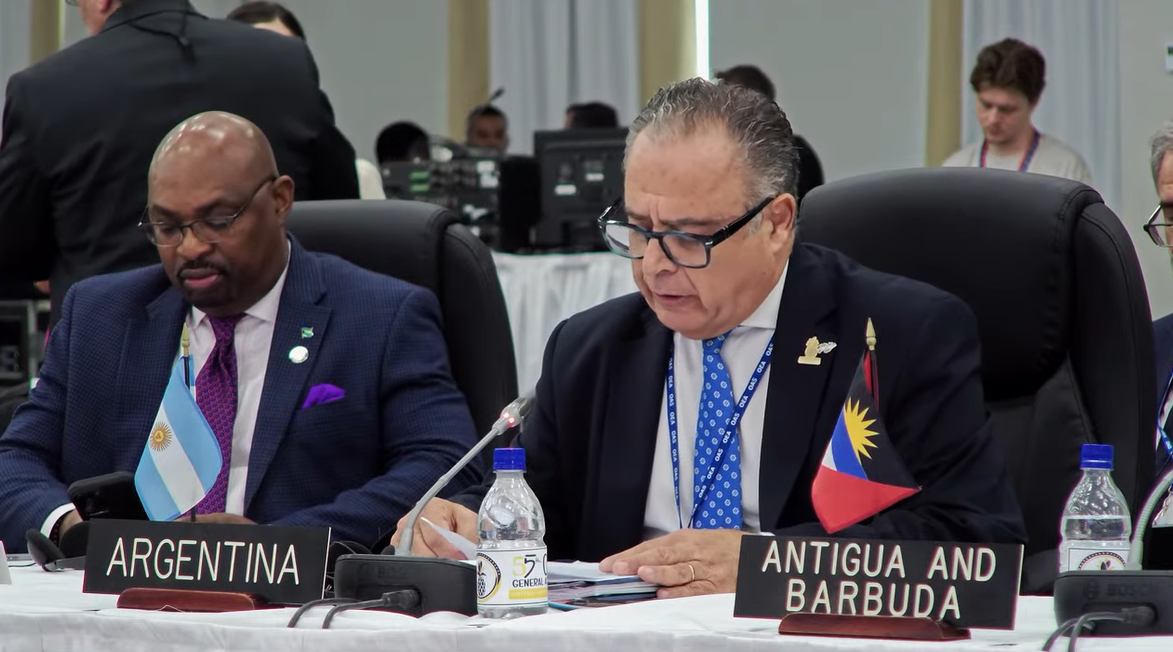The Organization of American States (OAS) backed Argentina’s claim over the Malvinas Islands in full on Friday, urging the country and the United Kingdom to resume negotiations on the sovereignty dispute as soon as possible.
The OAS’s declaration restated a position that its member states have frequently endorsed in previous general assemblies at least since 1988.
The organization’s general assembly unanimously supported the declaration on “the question of the Malvinas Islands” in its 55th regular session, which took place between Wednesday and Friday in St. John’s, Antigua and Barbuda.
Earlier this month, the United Nations’ Special Committee on Decolonization also adopted a resolution calling Argentina and the United Kingdom to resume talks over the sovereignty dispute.
“We are grateful for the unanimous support we have received from all of the Americas. The Malvinas are Argentine,” said Argentina’s Foreign Ministry in an X post.
In a separate post, President Javier Milei celebrated the decision. “Instead of shoddy and petty nationalism, we in the government respond with clear actions and concrete results,” he wrote.
The declaration said that despite Argentina and the United Kingdom maintaining “political, cultural, and trade ties” and sharing “common values,” they have not resumed negotiations to solve the dispute. The OAS also welcomed the will of the Argentine government to “continue exploring all possible avenues towards a peaceful settlement of the dispute and its constructive approach towards the inhabitants of the Malvinas Islands.”
The declaration urged both countries “to find a peaceful solution to this protracted controversy.”
“The way to put an end to the special and particular colonial situation in the question of the Falkland Islands (Malvinas) is the peaceful and negotiated settlement of the dispute over sovereignty between the Governments of the Argentine Republic and the United Kingdom of Great Britain and Northern Ireland,” the resolution said.
In April, during the commemoration of the country’s fallen soldiers in the 1982 Malvinas War against the United Kingdom, Milei argued that his economic policies were part of the government’s sovereignty claim over the Islands.
“We want to turn Argentina into such a power that [islanders] choose to be Argentine, without any further arguments or convincing required,” he said.
Milei’s comment proved controversial because it appeared to endorse the position that the islanders themselves are entitled to resolve the dispute through self-determination. This would have contradicted Argentina’s historic position, upheld by the United Nations, that the self-determination argument does not apply in the context of the Malvinas because it refers to native populations. However, the Malvinas were colonized by the British and the United Kingdom has controlled migration to and from the islands.
The President’s comments notwithstanding, Foreign Minister Gerardo Werthein’s speeches at international organizations have appeared to reflect Argentina’s historic position.
Editorial disclaimer: Although the UK refers to the territory as the “Falkland Islands,” Argentina strongly contests this name. The Buenos Aires Herald uses “Malvinas” to refer to the islands.
